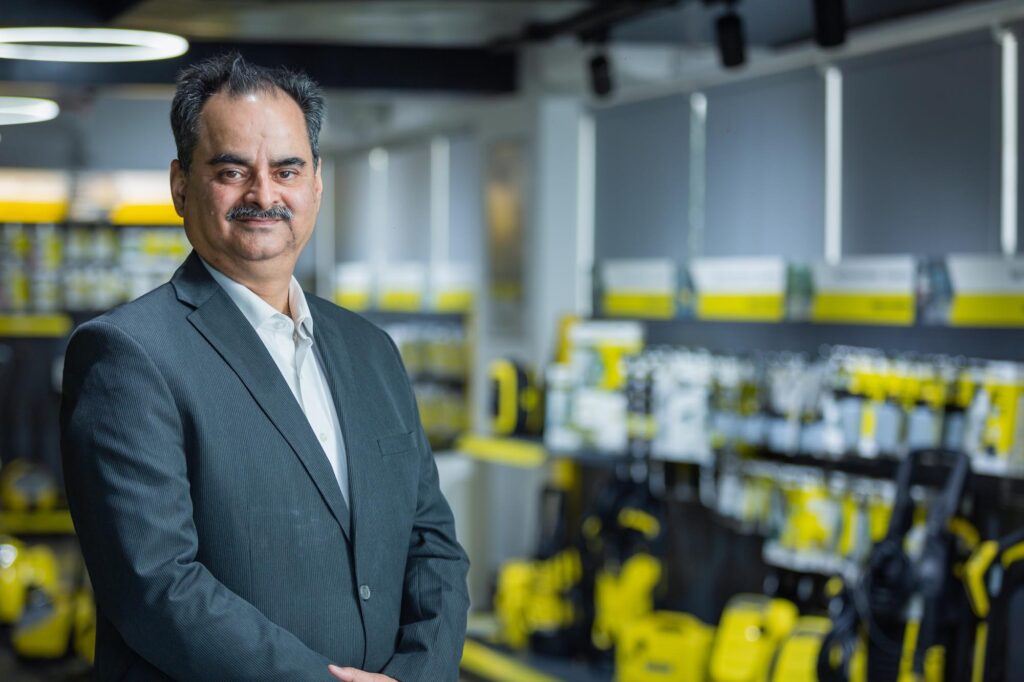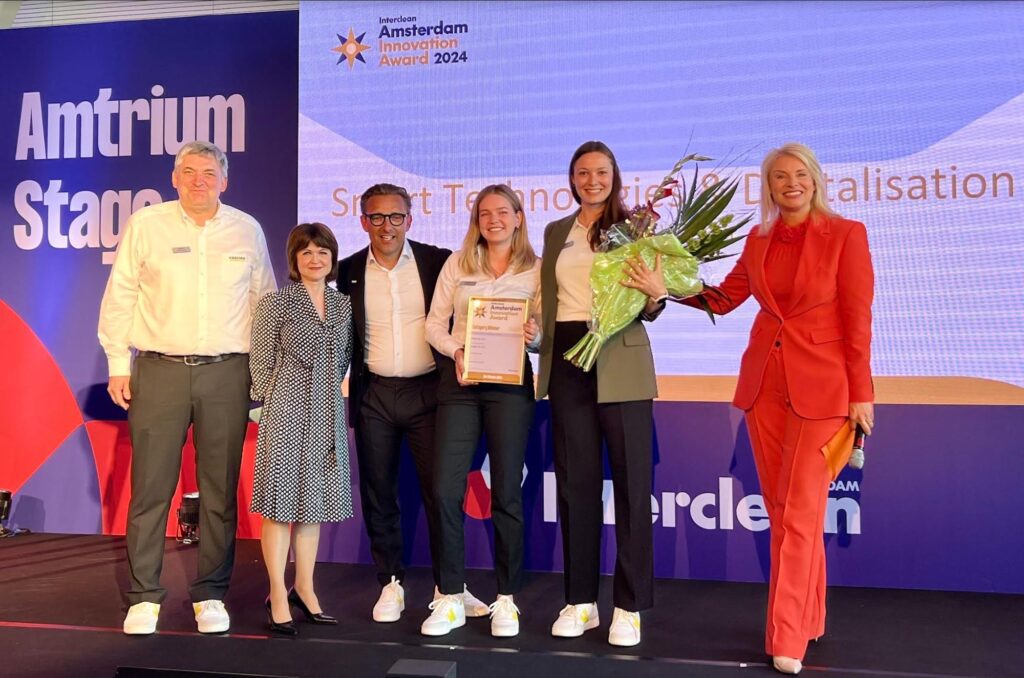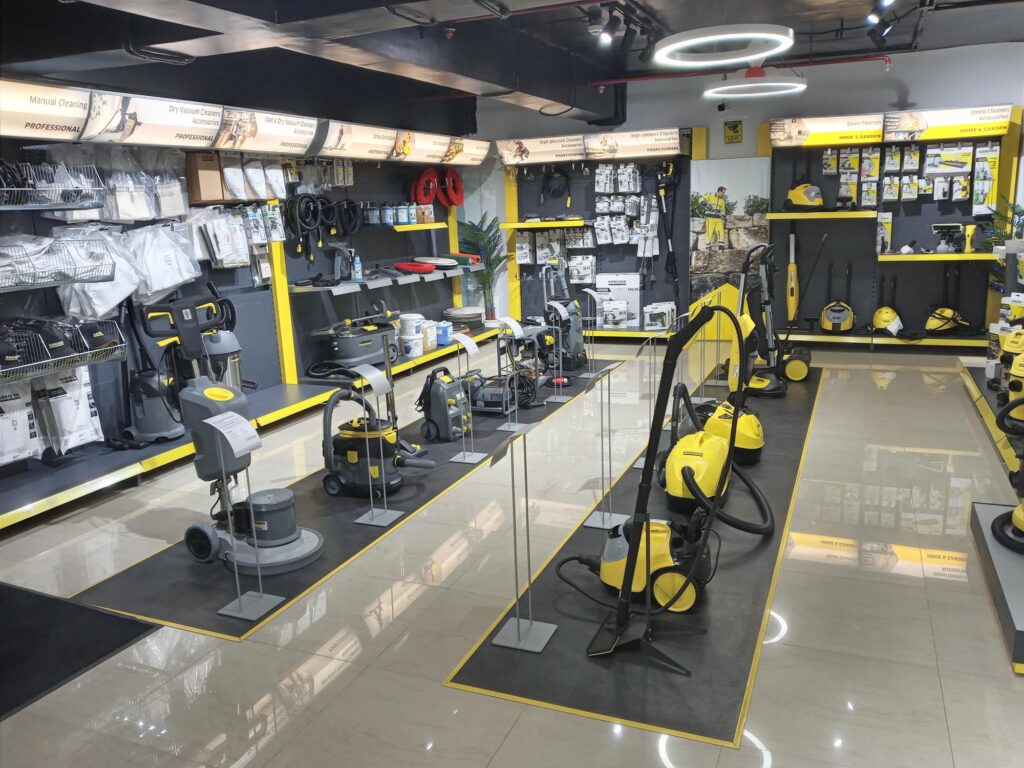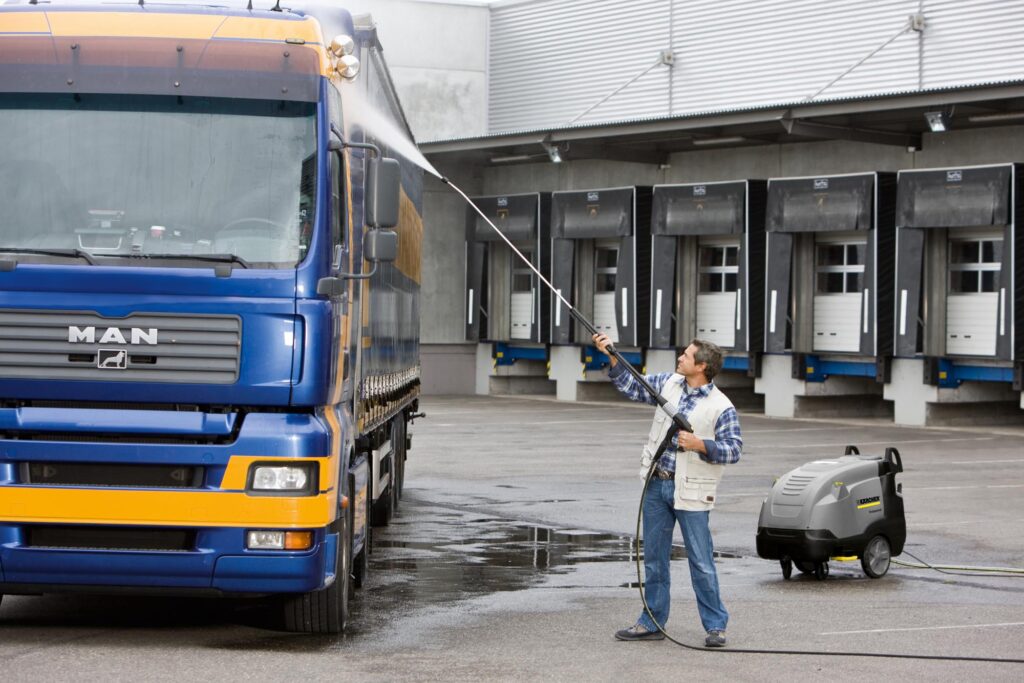
In an exclusive interview with Jatinder Kaul, Managing Director of Kärcher India, Rajesh Rajgor gained valuable insights into the company’s strategies and future plans. Kaul highlighted Kärcher India’s commitment to expanding manufacturing locally, bolstering distribution networks, and prioritising affordability. He also discussed advancements in robotic solutions and the ambitious Strategy 2030, aligning with India’s industrialisation and cleanliness initiatives. Emphasising cleanliness’s pivotal role in India’s development, he stressed the importance of collective efforts towards higher hygiene standards and environmental sustainability.
Kärcher India has built a solid reputation in the automotive cleaning sector, offering a diverse range of solutions tailored for both individual and commercial use. Jatinder Kaul, Managing Director of Kärcher India, elaborates on their offerings: “We provide end-to-end solutions for every cleaning challenge, whether it’s a small home and garden task or a professional need, with a significant focus on the automotive sector.”

For over 13 years, Kärcher India has been supplying pressure washers to numerous workshops and OEMs across India. These solutions include semi-automatic and fully automatic car washers, as well as vacuum systems to tackle the substantial dust found in Indian environments. “Our pressure washers are not only effective but also sustainable, using lower amounts of water while achieving high standards of cleanliness,” Kaul notes.
In addition to pressure washers, Kärcher India emphasises the importance of vacuuming car interiors to prevent dust accumulation, which can cause allergic reactions. “Vacuuming is crucial for air-conditioned cars to ensure we don’t breathe in dust, which settles on seat covers and other surfaces,” he explains. He also suggests that housing societies should install automatic car washes to save water and time, reflecting practices in developed nations.
Manufacturing and Distribution in India
Kärcher India plans to enhance its manufacturing presence in India, leveraging local world-class facilities to produce innovative products. “Globally, Kärcher is known for its innovation, investing heavily in sustainable solutions to benefit both customers and the environment,” Kaul adds.

Kärcher India’s CB3 series showcases their technological advancements, featuring German engineering and water recovery systems that promote sustainability. “We have been promoting semi-automatic car washes, allowing users to wash their cars efficiently and sustainably,” he says. These innovations are gaining traction, particularly in urban areas like Delhi and Bangalore amongst others.
Continuing from our discussion on Kärcher India’s advancements, Kaul provides deeper insights into their manufacturing and distribution strategies. While Kärcher India operates a full-fledged warehouse in Gujarat, their principal manufacturing joint venture is based in Coimbatore. “We are not far from establishing a world-class manufacturing facility in India,” he reveals, indicating that significant announcements are imminent, reflecting the growing importance of the Indian market.
Kaul underscores the vital role of a robust distribution network and after-sales service. “We have 15 offices nationwide and over 300 employees, half of them dedicated to service. This ensures we’re close to our customers, providing timely support,” he explains. Kärcher India partners with over 100 automotive sector distributors and aims to double this number by 2030.

“Our partners help us reach not only metros but also tier two, three, and four towns, ensuring the widespread availability of our products,” Kaul adds.
On product categories, Kaul highlights their focus on maintaining adequate stock to meet market demands promptly. “We ensure we have enough stock to cater to 80% of our business needs” he notes. This readiness includes high-margin products like vacuums, pressure washers, and underbody lances. “In the automotive segment alone, we sell well over 3,000 professional pressure washers annually, along with significant numbers of vacuum systems,” he states, showcasing Kärcher India’s ability to fulfil market needs efficiently.
Kaul also mentions their strategic plans for localisation to deliver solutions. “Localization of components is crucial for us to provide cost-effective solutions to Indian vendors,” he explains. Kärcher India’s strategy involves leveraging local manufacturing capabilities to enhance its competitive edge and sustainability. The commitment to innovation, sustainability, and customer satisfaction is central to Kärcher India’s operations. “Our goal is to ensure our customers never have to wait for solutions, reflecting our dedication to quality and prompt service,” expressed the MD.
Innovative, Affordable, and Clean Solutions
Kaul also elaborated on the company’s comprehensive approach to service and training, emphasising their importance in ensuring customer satisfaction. “Training plays a very crucial role for us,” he stated, pointing to their state-of-the-art facility in Noida. This centre is equipped with globally certified trainers who educate Kärcher India’s employees, dealers, and even customers on the use and maintenance of their machinery. “We have people who know how to sell the solutions, and show our ROI to customers,” he added, underscoring the strategic importance of training in their business model.
Kaul detailed Kärcher India’s commitment to on-site service and maintenance, highlighting their extensive operations at the Bangalore airport. “Complete troubleshooting is done at the site,” he said, emphasising the company’s dedication to immediate and efficient service. He also mentioned Kärcher India’s exploration of artificial intelligence to enhance service efficiency, particularly in remote areas, aiming to reduce customer wait times.
Regarding customer centricity, Kaul emphasised Kärcher India’s dedication to providing exceptional solutions. “We are committed to delivering unmatched value, regardless of any price differentials between us and our competitors. Our focus is on offering premium-quality products and services that consistently exceed expectations,” he explained.
To make their solutions more accessible, Kärcher India offers a variety of rental and financing options, ranging from one-day to five-year rentals. “We also provide leasing and financing routes because, while we are in the premium segment, we want to be available to a broader base of customers in India,” he noted.
Kaul highlighted Kärcher India’s advancements in robotic solutions, which have gained international recognition. “We won the prestigious Innovation Award in the category ‘Smart Technologies & Digitalisation’ last week at Interclean 2024 in Amsterdam,” he proudly shared. Interclean is the largest professional cleaning trade show in the world and is unsurpassed in its role as an international business networking platform for the cleaning and hygiene industry. These solutions are being utilised by global warehouse giants for night-time cleaning, demonstrating their practical application and effectiveness. Kaul expressed optimism about introducing these innovations to the automotive sector and other areas in India.
Looking ahead, Kaul revealed Kärcher India’s ambitious Strategy 2030, targeting significant growth fuelled by industrialisation and government initiatives on cleaning. “We are sure with the economy booming and with so much of industrialisation happening and with the government initiatives on cleaning, the whole industry will have a very good CAGR of almost 25 per cent in the cleaning industry,” he predicted. He emphasised the role of cleanliness in India’s development, noting, “The notable difference lies in the emphasis placed on cleanliness between developing and developed nations. This comparison inspires developing nations to continually enhance their own cleanliness and hygiene standards. By striving to improve and adopt best practices, developing nations are on an exciting journey towards achieving higher standards of cleanliness, ensuring healthier and more hygienic environments for all.”
Global Integration and Sustainable Vision
Kaul also discussed the potential for exports from India, noting that while current exports are not specific to the automotive sector, there are plans to expand in this area. “It’s only a matter of time,” he assured. This expansion will further integrate Kärcher India into the global market, leveraging local manufacturing capabilities.
On the topic of mechanised cleaning, Kaul stressed the need for a shift from manual methods to ensure thorough cleanliness and environmental sustainability. “We have to protect the water, which is going to be precious in due course of time,” he said, calling for a collective effort towards cleaner surroundings and responsible resource use. Kärcher India’s products, designed to minimise water usage and maximise efficiency, align with this vision.
Kaul also emphasised the importance of both OE (Original Equipment) sales and aftermarket services in their sales strategy. Currently, OE sales constitute around 25% of their business, with the remaining 75% coming from aftermarket sales. This balanced approach ensures that Kärcher India can meet the diverse needs of its customers while maintaining a strong market presence.
Kaul highlighted the importance of cleanliness in India’s development journey, stating, “We have to play a very crucial role in the journey of development.” With a strong focus on innovation, training, and sustainability, Kärcher India is well-positioned to lead the transformation of India’s cleaning industry. “We have to do it together to change this journey,” he emphasised, emphasising the collective effort required across the value chain, to achieve these ambitious goals.
Kärcher India’s dedication to water conservation, efficient power usage, and the use of eco-friendly chemicals highlights its commitment to sustainability across all product ranges. “We must ensure that water used in washing is recovered and not polluted, aligning with our commitment to sustainable practices,” concludes Kaul.